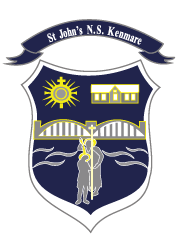The Administration of Medicines
The Administration of Medicines
While the Board of Management has a duty to safeguard the health and safety of pupils when they are engaged in authorised school activities this does not mean a duty upon teachers to personally undertake the administration of medicines.
The Board of Management requests parents to ensure that teachers be made aware in writing of any medical condition suffered by any children in their class.
• Non-prescriptive medicines will neither be stored nor administered to pupils in school. Prescribed medicines will not be administered in school without the written consent of parents and in the case of long term conditions e.g. Diabetes the specific authorisation of the Board of Management.
• The medicine should not be kept by the pupil but in a cupboard out of reach of pupils. Certain medicines, such as inhalers used by asthmatic children must be readily accessible at all times of the school day.
• The medicine should by self-administered if possible, under the supervision of an authorised adult.
• A written record of the date and time of administration must be kept.
• A teacher should not administer medication without the specific authorisation of the Board.
• No teacher can be required to administer medicine or drugs to a pupil.
• In emergency situations qualified medical assistance will be secured at the earliest opportunity.
• Parents of a pupil requiring regular medication during school hours should write to the Board to authorise a member of staff to administer the medication in school.
• Written details are required from the parent/guardian to the Board of Management giving the name of the child, name and dose of medication, whether the child should be responsible for her own medication, the circumstances in which medication is to be given by the teacher and consent for it to be given, when the parent is to be notified and where she can be contacted. It is the parent’s responsibility to check each morning whether or not the authorised teacher is in school unless an alternative arrangement is made locally.
• Where children are suffering from life threatening conditions, parents should outline clearly in writing, what can and can’t be done in a particular emergency situation, with particular reference to what may be a risk to the child.
• It is the parent’s responsibility to inform the school where children have an allergy to a substance contained in antiseptic wipes or plasters as these will be used in cases of accidents in school.
• Parents are further required to indemnify the Board of Management and authorised members of staff in respect of any liability that may arise regarding the administration of prescribed medicines in school. The Board of Management will inform the school’s insurers accordingly.
• Where possible the family doctor should arrange for the administration of prescribed medicines outside of school hours.
• Where permission has been given by the Board of Management for the administration of medicine the smallest possible dose should be brought to school, preferably by the parent with clear written instructions for administration, giving the name of the pupil. It is also the parent’s responsibility to check that the medicine is within expiry date.
• Changes in prescribed medication (or dosage) should be notified immediately to the school with clear written instructions of the procedure to be followed in storing and administering the new medication.
Parents should ensure that these procedures are clearly understood before submitting any request to the Board of Management.
This policy will be reviewed as and when necessary.

